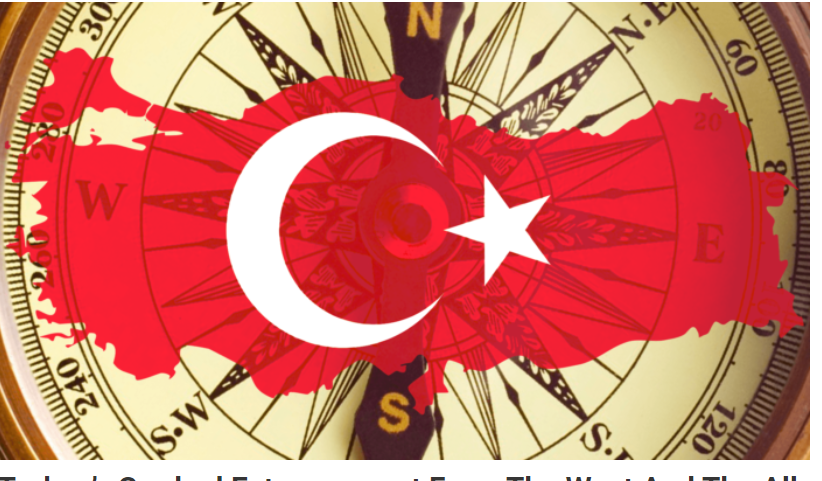Steven David’s theory of “omnibalancing” could be the best approach to explain Turkey’s foreign policy maneuvers and its recent rapprochement with former rivals. Steven David argues that leaders do not fix their relations with other countries only due to perceived external threats, but also due to domestic threats to their survival. He asserts that domestic threats to a leadership can motivate a policy of rapprochement; that is to choose to align with secondary adversaries so that greater focus can be allocated to primary adversaries in the domestic context. David explains this policy through the rational calculation of leaders, who aim to balance the domestic and external threats they perceive to their survival.
In the past few years, Turkey has encountered domestic threats that forced its leadership to choose a policy of appeasement in the face of secondary (external) threats. The recent policy of reconciliation with former adversaries, such as Egypt, Israel and the Gulf countries, can be viewed within this context. Turkey is approaching a critical election, which is scheduled for June 2023, at a time when the country is going through an economic crisis amid increasing anti-immigrant sentiment. It seems like the Ankara government wants to allocate all its energy and focus to fixing the economy, bringing tangible solutions to refugee issues and closing ranks among its base against the growing unified opposition alliance. The tense domestic context spurred the government to resort to some soul-searching in its foreign relations. Hence, foreign policy became a way to counter all these domestic difficulties.
Three Scourges of Turkish Economy: Unemployment, Inflation, and External Deficit | Real Turkey
First and foremost, inflation and rising unemployment have affected the majority of the population. The challenging economic situation is one of the areas the government wants to change before the people go to polls. Normalizing relations with the Gulf countries, particularly the UAE and Saudi Arabia, would be important in terms of boosting economic ties, increasing the volume of trade and attracting Saudi and Emirati foreign direct investment. To enhance economic cooperation, the UAE has allocated a $10 billion fund for investment in Turkey and started negotiations for a free trade deal. The Gulf countries, Egypt and Israel also have their own calculations for normalizing relations with Turkey for the sake of their internal and external interests.
Secondly, after several attempts, Turkey’s six opposition parties have managed to sit together and pen a document with the common goal of reinstituting the country’s parliamentary system, which was replaced by the executive presidency in 2018. For years, Turkey’s opposition parties were criticized for failing to create a unified stance against the ruling AKP. But the leaders of these six parties met for the third time at an iftar dinner on April 24 to discuss their joint strategy for the election and to discuss the criteria for their presidential candidate. However, the opposition alliance is yet to convince the public regarding its strategies to find concrete solutions to Turkey’s issues. Time will tell whether they will succeed in this, but meanwhile the ruling party will aim to close ranks with its base.
Meet the Person Who Can Beat Erdogan: Kemal Kilicdaroglu | Real Turkey
Thirdly, besides the economic crisis, the refugee issue is expected to be one of the battlegrounds between the opposition alliance and the AKP, which is in alliance with the far-right Nationalist Movement Party. In the past few months, anti-refugee and anti-immigrant sentiments have increased, with a constant flow of footage on social media leading to increasing anger among the Turkish people, many of whom want refugees to be sent back to their home countries. Amid growing grievances within the public consciousness, the government even banned Syrian refugees from traveling across the border for Eid Al-Fitr for the first time.
Turkish President Recep Tayyip Erdogan announced this week that the government is drafting plans to return 1 million Syrian refugees to northern Syria. This is part of a scheme to build housing and provide services in regions held by Turkish-backed forces in the country. Turkey currently hosts 3.7 million Syrian refugees and 1.7 million other foreign nationals, including Afghans and Pakistanis. In the last few years, following a series of incidents of communal violence between locals and refugees, Turkey’s opposition leaders have spearheaded the increasingly hostile anti-Syrian rhetoric and vowed to send Syrians back to their country if they come to power.
The refugee issue has started to occupy top place in the political and social sphere, pressuring the government to take concrete steps in this regard. Ahead of next year’s election, a dialogue channel might even be opened between Ankara and Damascus in regard to the refugee issue, although it is unlikely that Turkey will change its objectives in Syria.
Domestic politics seems to be the de facto guiding motivation behind Ankara’s foreign policy. As the conduct of Turkey’s foreign policy has become increasingly focused on success in domestic politics, it has created opportunities for rapprochement with former adversaries.
- Sinem Cengiz is a Turkish political analyst who specializes in Turkey’s relations with the Middle East. Twitter: @SinemCngz
Follow our English language YouTube videos @ REAL TURKEY:
https://www.youtube.com/channel/UCKpFJB4GFiNkhmpVZQ_d9Rg
And content at Twitter: @AtillaEng
